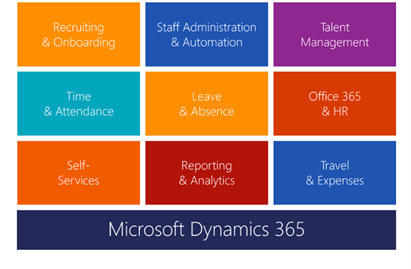The pandemic had a significant influence on the healthcare industry, resulting in anything from job losses to employee weariness. In the aftermath of COVID-19, Healthcare HR professionals are experiencing the effects of the epidemic as they face a variety of resourcing, human capital management, and growth challenges.
Be that as it may, most nations have made peace with the fact that we must live with the coronavirus’s reality as a prevalent disease like any other. Also, every stakeholder must realize that any country’s level of development can be gauged by how well-developed its healthcare system is.
Therefore, the issues that the global healthcare industry is facing should be of the utmost concern to every state, their respective governments, and the international health and medical agencies, and must be resolved in a sustainable and effective manner.
All major HR issues in this sector are crucial such as, starting from the lack of qualified healthcare workers, staff burnout, and patient discontent and lack of their satisfaction in global healthcare scenario,
Healthcare HR encompasses more than the standard hiring, onboarding, payroll, and firing processes. People management is a necessary component of HR’s work in all industries, including the healthcare sector
Meeting the demands of such a workforce is no easy undertaking, particularly given the medical industry’s current state of fast change. To manage successful healthcare practices, HR directors in the healthcare industry are being encouraged to become more strategic, futuristic, and tech-savvy.
In many studies done by ERP solutions providers indicate that HR professionals’ primary concern in the healthcare sector is finding talent such as trained doctors and nursing staff is the biggest challenge. Furthermore, they also have to deal with employee exhaustion, the ongoing need for retraining that very staff, and modifying state legislation and licensing standards. Other departments undoubtedly deal with huge problems, but HR specialists in the healthcare sector claim that their difficulties have never been this severe.
Top five HR Professional Issues in Healthcare
Human Resource in the healthcare field are now facing and in 2023, these must be prioritized and resolved.
1. Tackling Employee and Patient Dissatisfaction
A recent negative experience with a healthcare administrator or practitioner caused 39% of consumers to forgo seeing a doctor. Patients expect services to be hassle-free, from making appointments to performing testing and paying medical costs. Despite having an appointment, no patient likes to wait around for very long.
Thus, eliminating scheduling and management concerns will result in higher satisfaction ratings. So that practitioners don’t miss appointments, HR professionals must make sure that schedules and shifts are well-organized and planned.
The administration of the hospital may be aided and transformed by a more efficient employee management platform in order to provide satisfying human experiences.
2. Shortage of Talent & Complex Recruitment
According to Vanderbilt University experts, the nursing shortage is predicted to be more than twice as severe by 2025. It is because of the complex HR processes that are prevailing due to the old or primitive mindset as well as the healthcare infrastructure, globally.
- The number of healthcare jobs in the United States will expand by 12% between 2018 and 2028, roughly double the predicted rate for all occupations.
- Similarly, In the United Kingdom, healthcare professional staff is being hired on a priority basis.
3. Healthcare Staff Burnout
Burnout occurs in all occupations, but it is frequently more severe in the healthcare industry. One in three professionals in the nursing field alone expresses some remorse over their career decision. Burnout rates for medical and surgical disciplines are the same.
The need to address the strains work causes on employees in the healthcare industry is critical since job happiness has become a new goal for all industries. Staff members who are not performing at their best may experience personal hardships in addition to negatively affecting patient outcomes. Understanding the symptoms of burnout and taking positive action to intervene can be crucial for the staff person and the facility for healthcare HR professionals.
4. Embracing modern technology and Digital Improvement

It will be important to develop new ways for storage and management as the volume of patient records, clinical notes, and administrative data increases. The healthcare sector also demands more AI-integrated software systems to handle the expanding amount of data.
Patients and record keepers benefit greatly from the improved database, which may also be used to address other HR issues facing the healthcare sector. With information readily available and accessible thanks to technology, patients may more easily set appointments, keep track of their visits, and learn more about their treatment options.
5. Futuristic Learning & Development
Career advancement is crucial in the quickly changing medical sector. Employees must receive the appropriate training to maintain their level of performance when healthcare standards evolve and new technologies are rolled out.
Healthcare HR divisions must, however, offer training that go beyond the bare minimum. Organizations must offer plenty of options for promotion, including opportunities for leadership development, in order to keep employees and fill open jobs.
Dynamics 365: A Resolve for every HR Problem in Healthcare
Dynamics 365 in conjunction with the emergence of data-centric healthcare. In this regard, let’s have a look at how Dynamics 365 ERP, especially HR-related solutions can transform the global health system.
Medical businesses can better optimize network performance with the help of Dynamics 365 HR for Healthcare. Additionally, they have the ability to automate everything possible while simultaneously elevating the member experience in real-time. Additionally, Dynamics 365 Healthcare HR Professionals may offer regular members tailored care management and boost membership with crucial information.
Features of Dynamics 365 for healthcare:

In a Nutshell, Microsoft Dynamics 365 HR for Healthcare brings agility with;
✔️ Centralized System
✔️ Maintain all Patient Information
✔️ Safety and Accountability
✔️ Automatic Notifications
✔️ Real-time Data
✔️ Beneficial Integration
Paving the Way for Healthcare Human Resource Progress!
Today, streamlining Microsoft dynamics 365 for healthcare operations is required in multiple industries with intelligent technological resolve.
In these circumstances, the cloud is brimming with prospects of success, and Microsoft Azure is the Silver Lining for your Business and Human resource obstacles.
Plan your Digital Transformation Now!
With Microsoft Dynamics 365 Solution, Dynamics Solution and Technology have a proven track record of success across multiple regions.
We have Got You Covered!

Dynamics Solution and Technology got Microsoft certified professionals who are well-versed in Microsoft Azure, with all its intricacies and how it interacts with other Microsoft products. Apart from employing Dynamics 365 HR for Healthcare, We, at DST have industry-leading performance, enabling worldwide clients’ simplicity in human resource areas with the help of cloud Azure (Migration and Upgrade) and support. Aside from Azure, we digitally transform your business by leveraging Dynamics 365 competent and real-time scalability with high efficiencies.
To experience agility beyond norms with tailored solutions for your worldwide enterprises.







